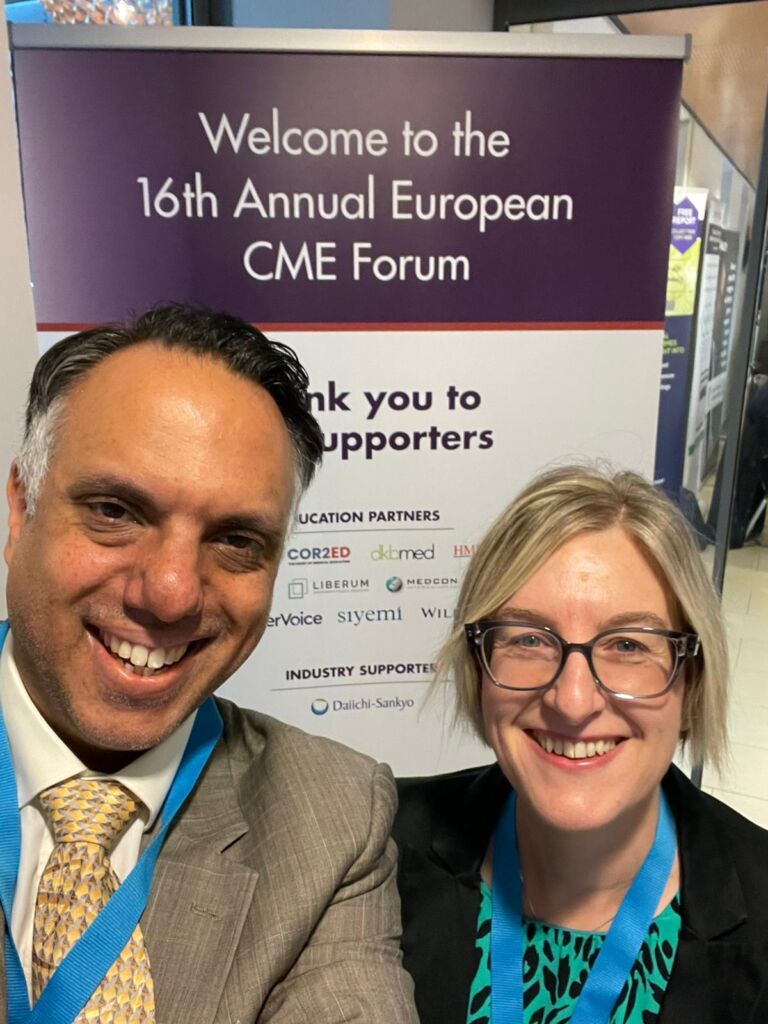
A chance to reflect and connect with thought leaders in European CME
Very recently, I was lucky enough, along with my colleague James Hutton (Global Operations Lead, IME) to attend the 16th European CME Forum in the Hague, Netherlands. This meeting brought together over 100 stakeholders passionate about global IME/CME, including CME providers, industry supporters, society groups and representatives of accreditation bodies. The theme of this year’s meetings was “Voices in CME-CPD” and the approach was very collaborative, featuring many workshops and breakouts where we got to explore this theme more closely.
A lot has happened this year in the field of European CME and, inevitably, there was a lot of conversation around the release of the new EACCME 3.0 guideline documentation, as well as the impact of the recent PMCPA ruling for CME providers (particularly on those either based in the UK or those who wish to target UK-based HCP learners). The Good CME Practice group have recently published a Letter on this topic in the Journal of CME, and I recommend everyone taking a read. It’s an honest assessment of the current landscape in European CME, highlighting some of the challenges we face in navigating the current complex regulatory environment.
But back to the meeting itself. What stood out to me was the desire of everyone in the room to develop and deliver the best-quality education for HCPs, with positive and open discussions around the development of best practice not only in choosing the best format for our education that meets the demands of modern HCPs, but also in how we meaningfully measure the impact of that education. Some of the key takeaways and topics that resonated with me were:
- Needs assessments – these now need to go beyond a mere literature review, and pull in many more aspects including learner and HCP surveys, previous outcomes, past program evaluations, and more
- Outcomes – we need to talk about the real-world impactof our programs, rather than just the quantitative/qualitative outcomes
- 50% of Gen Z use TikTok to research health conditions – how can we meet the future educational needs of this healthcare generation through social media?
- The pros and cons of microlearning, and how to balance reach and engagement versus realistic impact/outcome goals
I left the meeting with so many ideas and plans for how we can continue to improve our educational programs at Springer Healthcare IME in 2024, so watch this space in 2024!


